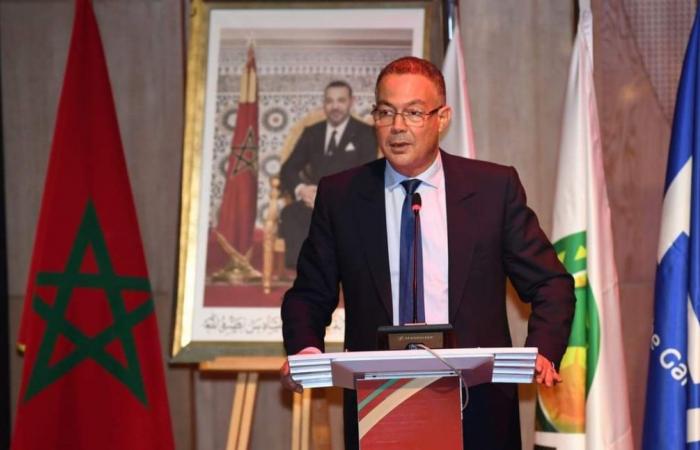The last Council of Ministers, chaired by King Mohammed VI, marks a crucial step in the construction of the operational framework for direct social assistance, the cornerstone of the social state model desired by the sovereign. On this occasion, two leaders were appointed, on the proposal of Fouzi Lekjaa, a man with a remarkable career, who is now nicknamed “the infernal machine” for his ability to materialize the royal vision with formidable efficiency.
Minister Delegate in charge of the Budget and architect of the greatest successes of Moroccan football, Lekjaa is now taking charge of the management of this fundamental issue for the social future of the country.
However, the appointment of Wafaa Jemali, close collaborator of Aziz Akhannouch, raises questions about the political neutrality of this strategic agency, adding a delicate dimension to Mr. Lekjaa’s responsibility.
King Mohammed VI chaired, Friday, October 18 at the Royal Palace in Rabat, a Council of Ministers devoted to examining the general orientations of the finance bill for the year 2025 and the approval of draft decrees relating to the military field, as well as the adoption of several international agreements and a series of appointments to senior positions. Among these appointments, and on the proposal of the Head of Government and on the initiative of the Minister Delegate to the Minister of Economy and Finance in charge of the Budget, are those of:
- M. Said LaithDirector General of the High Atlas Development Agency.
- Mrs. Jemali, Director General of the National Social Support Agency.
Fouzi Lekjaa: the “finisher” of social reforms
Fouzi Lekjaa, recognized for his efficiency and his sense of management, has already demonstrated his ability to transform dreams into reality, notably with the management of Moroccan football, leading to the organization, among others, of the 2030 World Cup. This The same rigor will now be applied to the direct social assistance project. Under his supervision, two key agencies have just been established: the High Atlas Development Agency, headed by Mr. Said Laith, and the National Social Support Agency, led by Ms. Wafâa Jemali.
A reinforced social architecture
L’National Social Support Agency has the mission of managing the new system of direct social assistance, in particular family allowances and aid to vulnerable families. This agency will be equipped with modern means of monitoring and management, with a rigorous administrative and financial structure. It will ensure that each dirham invested in social protection has a measurable impact on the daily lives of the most deprived Moroccan citizens.
For its part, theHigh Atlas Development Agencyin response to the Al Haouz earthquake, will play a key role in the reconstruction of the disaster areas. By coordinating rehabilitation efforts, this agency will place the resilience of local communities at the heart of its actions, while ensuring the improvement of infrastructure in this mountainous region.
Lekjaa, a well-oiled machine
The appointment of Fouzi Lekjaa at the head of this sensitive and crucial brick in the social project shows the royal desire to rely on experienced and determined personalities. “The infernal machine” has proven through its multiple successes that it is capable of carrying out large-scale projects brilliantly, as evidenced by its role in football. With this new responsibility, Lekjaa is once again committed to transforming the royal vision into a tangible reality, guided by efficiency, rigor and innovation.
But a question arises: the appointment of Ms. Wafaa Jemali, former Secretary General of the Government Chieftaincy and former leader of the Joud association, the electoral arm of Aziz Akhannouch, recently replaced, at the head of the National Agency for Does social support not risk compromising the neutrality of this key institution?
By placing his closest collaborator at the head of the agency, the Head of Government sought to guarantee its proper functioning, in order to keep his commitment to the sovereign and accelerate the finalization of the social state project during his term. mandate?
Fouzi Lekjaa, beyond his formidable efficiency, today bears a double responsibility: not only ensuring the operational success of this ambitious reform, but also guaranteeing the political impartiality of the agency headed by Ms. Wafaa Jemali.






